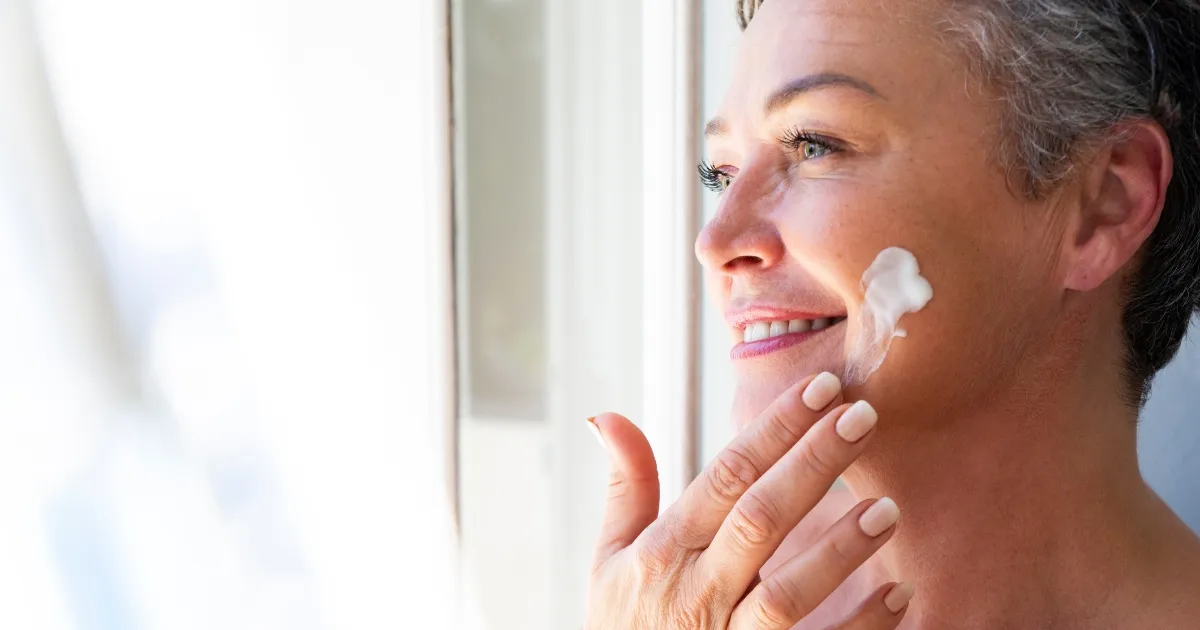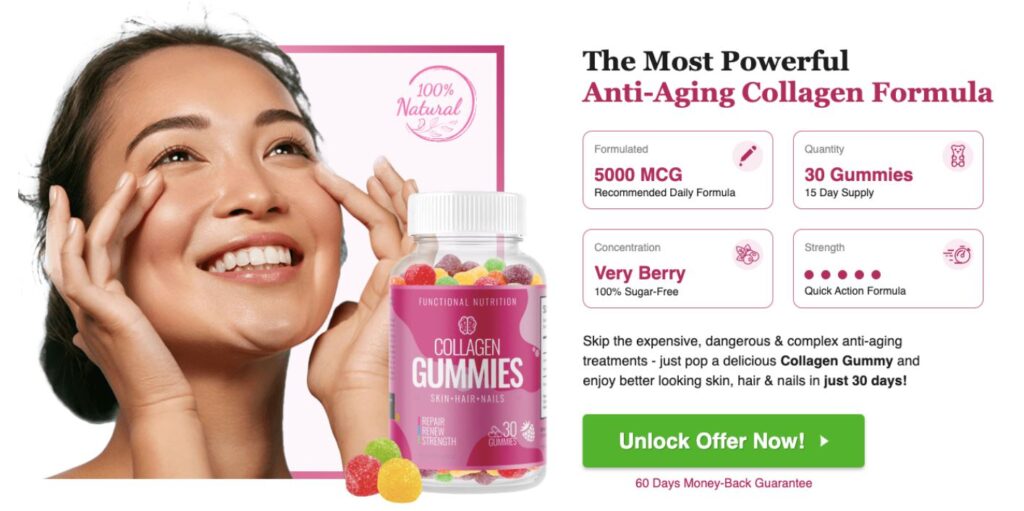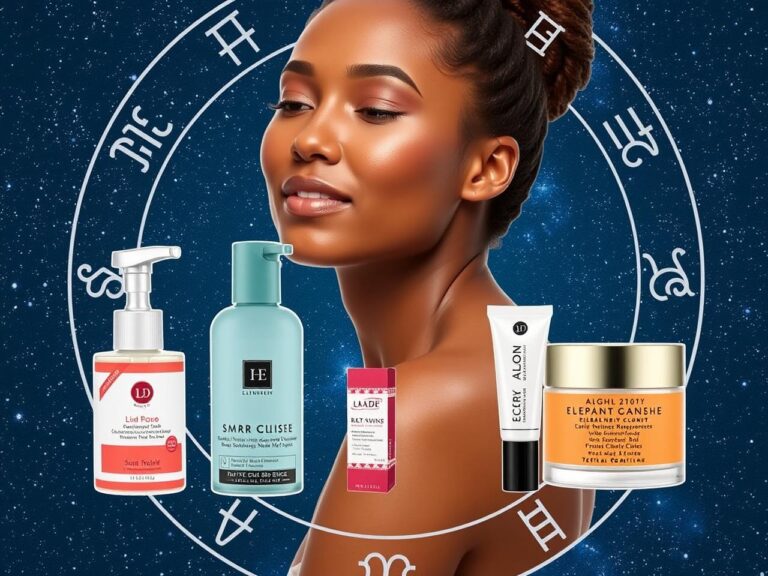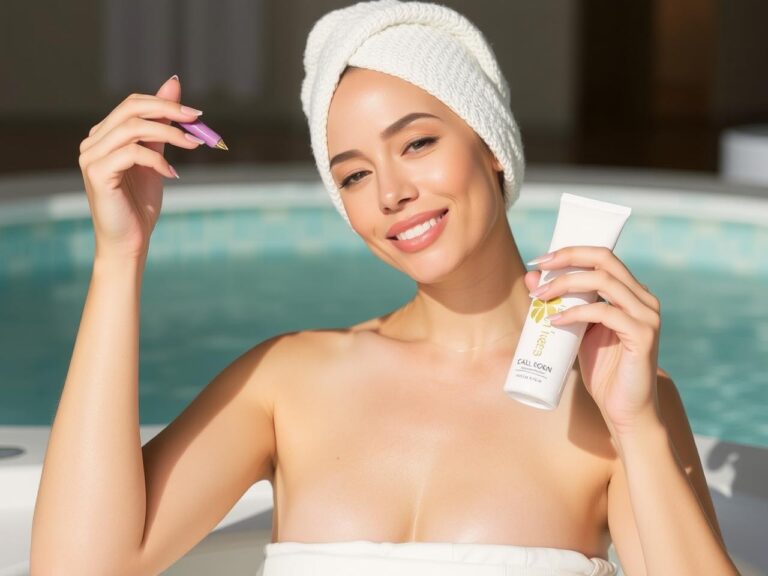4 Anti-Aging Vitamins Dermatologists Swear By: Unlocking the Secrets to Youthful Skin
In the quest for youthful, radiant skin, many of us turn to an array of anti-aging serums, creams, and treatments. While these products can certainly play a role in maintaining a healthy complexion, it’s crucial not to overlook the importance of nutrition in our skincare routines. Dermatologists have long recognized the power of certain vitamins in combating the signs of aging from within. This comprehensive guide delves into the four essential anti-aging vitamins that skin experts consistently recommend for maintaining a youthful appearance and promoting overall skin health.
The Science Behind Anti-Aging Vitamins
Understanding Free Radicals and Oxidative Stress
Free radicals are unstable molecules that can damage cells, leading to premature aging and various health issues. These molecules are produced naturally in our bodies as a result of normal metabolic processes, but they can also be generated by external factors such as pollution, UV radiation, and unhealthy lifestyle habits.
When free radicals accumulate faster than the body can neutralize them, it leads to a state called oxidative stress. This imbalance can cause significant damage to cellular structures, including DNA, proteins, and lipids. In the skin, oxidative stress manifests as premature wrinkles, fine lines, and loss of elasticity.
Antioxidants play a crucial role in combating free radicals and reducing oxidative stress. They work by donating electrons to stabilize these unstable molecules, effectively neutralizing their harmful effects. This is where anti-aging vitamins come into play, as many of them possess potent antioxidant properties.
The Role of Collagen in Skin Health
Collagen is the most abundant protein in our bodies and is essential for maintaining the structure and elasticity of the skin. As we age, our natural collagen production decreases, leading to the formation of wrinkles and sagging skin.
Certain vitamins can help stimulate collagen production and protect existing collagen from breakdown. By incorporating these vitamins into our diets or skincare routines, we can support our skin’s natural collagen levels and maintain a more youthful appearance.
The Importance of Hydration and Skin Barrier Function
Proper hydration is crucial for maintaining healthy, youthful-looking skin. When the skin is well-hydrated, it appears plumper, smoother, and more radiant. Additionally, a strong skin barrier function is essential for protecting against environmental stressors and maintaining optimal skin health.
Some vitamins play a vital role in supporting the skin’s natural moisture barrier and promoting hydration from within. By ensuring adequate intake of these nutrients, we can help our skin retain moisture more effectively and maintain a healthy, youthful glow.
Vitamin C: The Collagen-Boosting Powerhouse
The Antioxidant Properties of Vitamin C
Vitamin C, also known as ascorbic acid, is a potent antioxidant that plays a crucial role in protecting the skin from free radical damage. Its ability to neutralize harmful molecules makes it an essential component in any anti-aging skincare routine.
Research has shown that vitamin C can help prevent and even reverse UV-induced damage, such as hyperpigmentation and sunspots. By incorporating vitamin C into your daily regimen, you can provide your skin with a powerful defense against environmental stressors that contribute to premature aging.
Collagen Synthesis and Vitamin C
One of the most significant benefits of vitamin C for skin health is its ability to stimulate collagen production. Collagen is essential for maintaining skin elasticity and firmness, and its production naturally decreases as we age.
Vitamin C is a cofactor for the enzymes responsible for collagen synthesis. This means that without adequate vitamin C, our bodies cannot produce collagen effectively. By ensuring sufficient vitamin C intake, we can support our skin’s natural collagen production and maintain a more youthful appearance.
Topical vs. Oral Vitamin C for Skin Health
While dietary sources of vitamin C are important for overall health, topical application can provide targeted benefits for the skin. Vitamin C serums and creams have become increasingly popular in recent years due to their ability to deliver high concentrations of this powerful antioxidant directly to the skin.
When choosing a topical vitamin C product, look for stable formulations such as L-ascorbic acid or its derivatives like magnesium ascorbyl phosphate. These forms are more easily absorbed by the skin and can provide maximum benefits.
However, it’s important to note that a combination of both topical and oral vitamin C intake is ideal for optimal skin health. Consuming vitamin C-rich foods or taking supplements can help support your skin from within, while topical applications provide targeted benefits to the skin’s surface.
Vitamin E: The Skin’s Natural Moisturizer
Vitamin E as a Powerful Antioxidant
Vitamin E, like vitamin C, is a potent antioxidant that plays a crucial role in protecting the skin from oxidative stress. It works by neutralizing free radicals and preventing cellular damage that can lead to premature aging.
What sets vitamin E apart is its lipid-soluble nature, allowing it to penetrate deep into the skin’s layers and cell membranes. This property makes vitamin E particularly effective in protecting the skin’s lipids from oxidation, helping to maintain the integrity of cell membranes and support overall skin health.
Moisturizing and Healing Properties of Vitamin E
One of the most well-known benefits of vitamin E for skin health is its moisturizing properties. Vitamin E helps to strengthen the skin’s barrier function, which is essential for retaining moisture and preventing water loss.
By improving the skin’s ability to hold onto moisture, vitamin E can help alleviate dry, flaky skin and promote a smoother, more supple complexion. This moisturizing effect also contributes to the reduction of fine lines and wrinkles, as well-hydrated skin appears plumper and more youthful.
Synergistic Effects of Vitamins E and C
While both vitamin E and vitamin C are powerful antioxidants in their own right, they work even better when used together. Studies have shown that these vitamins have a synergistic effect, meaning they enhance each other’s antioxidant capabilities when combined.
Vitamin E can help regenerate vitamin C after it has neutralized free radicals, effectively recycling it and extending its antioxidant effects. Similarly, vitamin C can help restore vitamin E to its active form after it has been oxidized.
This synergistic relationship makes the combination of vitamins E and C particularly effective in protecting the skin from oxidative stress and supporting overall skin health. Many anti-aging skincare products now incorporate both of these vitamins to maximize their benefits.
Selenium: The Trace Mineral with Major Anti-Aging Benefits
Selenium’s Role in Antioxidant Defense
Selenium is a trace mineral that plays a crucial role in the body’s antioxidant defense system. While it’s needed only in small amounts, its impact on skin health and overall well-being is significant.
One of selenium’s primary functions is to support the production and activity of antioxidant enzymes, particularly glutathione peroxidase. This enzyme is essential for neutralizing hydrogen peroxide and other harmful free radicals that can damage cellular structures and accelerate the aging process.
By supporting the body’s natural antioxidant defenses, selenium helps protect the skin from oxidative stress and the resulting signs of premature aging, such as wrinkles, fine lines, and loss of elasticity.
Selenium and Skin Cancer Prevention
In addition to its general anti-aging benefits, selenium has been studied for its potential role in skin cancer prevention. Some research suggests that adequate selenium intake may help reduce the risk of certain types of skin cancer, including basal cell carcinoma and squamous cell carcinoma.
While more studies are needed to fully understand the relationship between selenium and skin cancer prevention, maintaining adequate selenium levels through diet or supplementation may offer additional protection against UV-induced skin damage.
Dietary Sources and Supplementation of Selenium
Selenium can be found in a variety of foods, with Brazil nuts being one of the richest natural sources. Other good dietary sources include seafood, organ meats, whole grains, and certain vegetables grown in selenium-rich soils.
For those who may not get enough selenium through their diet, supplements are available. However, it’s important to note that selenium can be toxic in high doses, so it’s crucial to consult with a healthcare professional before starting any supplementation regimen.
When choosing a selenium supplement, look for forms like selenomethionine or selenium-enriched yeast, which are more easily absorbed by the body. As with any supplement, quality and proper dosage are key to ensuring maximum benefits without risking adverse effects.
Omega-3 Fatty Acids: Essential Nutrients for Skin Health
The Anti-Inflammatory Properties of Omega-3s
Omega-3 fatty acids, particularly EPA (eicosapentaenoic acid) and DHA (docosahexaenoic acid), are renowned for their potent anti-inflammatory properties. Inflammation is a key factor in many skin issues, including premature aging, acne, and various skin disorders.
By incorporating omega-3s into your diet, you can help reduce systemic inflammation, which in turn can lead to healthier, more youthful-looking skin. These essential fatty acids work by inhibiting the production of pro-inflammatory compounds and promoting the synthesis of anti-inflammatory mediators.
Omega-3s and Skin Barrier Function
One of the most significant benefits of omega-3 fatty acids for skin health is their ability to support and strengthen the skin’s natural barrier function. The skin barrier is crucial for maintaining hydration, protecting against environmental stressors, and preventing the entry of harmful substances.
Omega-3s, particularly DHA, are integral components of cell membranes. By ensuring adequate intake of these fatty acids, you can help maintain the structural integrity of skin cells and support overall skin health.
A strong skin barrier also helps to lock in moisture, leading to better-hydrated skin that appears plumper and more youthful. This improved hydration can help reduce the appearance of fine lines and wrinkles, giving the skin a smoother, more radiant appearance.
Dietary Sources and Supplementation of Omega-3s
The best dietary sources of omega-3 fatty acids are fatty fish such as salmon, mackerel, sardines, and anchovies. For those who don’t consume fish regularly, plant-based sources like flaxseeds, chia seeds, and walnuts can provide alpha-linolenic acid (ALA), which the body can convert to EPA and DHA, albeit less efficiently.
For individuals who struggle to get enough omega-3s through diet alone, fish oil supplements can be a convenient alternative. When choosing a fish oil supplement, look for products that have been molecularly distilled to remove potential contaminants and ensure purity.
It’s worth noting that while both dietary sources and supplements can provide benefits, whole food sources often come with additional nutrients that may enhance the overall health effects. As always, it’s best to consult with a healthcare professional before starting any new supplement regimen.
Conclusion: Integrating Anti-Aging Vitamins into Your Skincare Routine
Incorporating these four anti-aging vitamins – vitamin C, vitamin E, selenium, and omega-3 fatty acids – into your skincare routine can significantly contribute to maintaining youthful, healthy skin. While topical applications and supplements can be beneficial, it’s important to remember that a balanced diet rich in these nutrients is the foundation of good skin health.
To maximize the benefits of these anti-aging vitamins, consider the following strategies:
- Eat a varied diet rich in fruits, vegetables, whole grains, and fatty fish.
- Consider targeted supplements under the guidance of a healthcare professional.
- Use skincare products that contain stable forms of vitamins C and E.
- Protect your skin from UV damage by using sunscreen daily.
- Stay hydrated and maintain a healthy lifestyle to support overall skin health.
By taking a holistic approach that combines proper nutrition, targeted supplementation, and effective skincare practices, you can harness the power of these essential vitamins to combat the signs of aging and maintain a radiant, youthful complexion for years to come.








